Executive Interviews
Our Executive Interviews feature top leaders from across the disciplines that we specialise in, sharing their career advice and experience with candidates seeking success in those sectors.
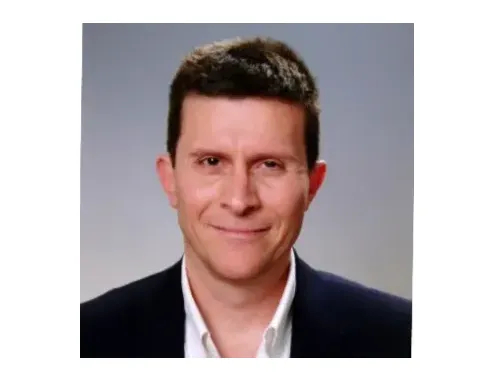
Christos Assimakopoulos– Director of International Accounting / Managing Director, Covidien Ag (part of Medtronic)
Based on your own experience what career advice would you provide junior candidates looking to pursue a career in finance?
I will go beyond the typical answer which is to love the profession and be passionate; if a career in finance is your genuine career choice, you should embrace the culture of adding value every single day. The first job is not a trophy for the studies, it is an opportunity that someone has given you in order to contribute to a mission and you have to prove that you really deserve this opportunity. From then on you need to show character and learn from opportunities and in order to do that it will not help to just have a 9-5 job. You need to get involved in these difficult projects, that may look scary from the beginning, but you need to jump into the unknown and embrace change.
Follow the opportunities, we are living in a globalized world, so the opportunities may not always be in the place where you are. Be a role model when it comes to achieving and when it comes to business ethics, this is always something we have to have in mind. You bring value through cooperation, no-one can afford to work and live in a silo, so you need to take opportunities in order to cooperate with other functions and come as close as possible to the company’s customer.
Finally, this applies to everyone not just those in finance, we need to manage our careers and make sure we update and have marketable skills. Have a good professional network, that first you actively support, and you can reach out for help with your challenges and also to advance your career.
What would you say is the most rewarding part of your current role?
Having the opportunity to come to Switzerland with my family has definitely been one of the highlights! However, moving to the role itself, this was something that was completely new for me and it took me out of my comfort zone. Untill then I was dealing with country, business and regional finance, so when I moved to this role in December 2012 I started managing entities in Switzerland and Luxembourg, including a principal and an in-house bank, with a global footprint, significant turnover and assets to manage, putting together structures to support spin-offs, dealing with cash mobilization, and trying to find efficient structures to move cash throughout the chain. Working with business leaders, taking their ideas and trying to make them compatible with the group business model, not only in Europe, but in Latin America, Asia and Africa. All this bought new challenges, I was completely out of my comfort zone so big successes definitely helped my self-confidence.
Having to manage and grow a team where several of my team members were points of reference in their field was a big responsibility and a great opportunity to grow my managerial skills.
My role is also chairing the Board of Directors of 5 Swiss entities. Serving a Board consisting of an EMEA Group Vice President, the Corporate Treasurer, and the Group Tax Leader has given me a valuable opportunity, getting more comfortable with higher management and managing these relationships, and I do not think this is something I would have gained in another role. In my role in Schaffhausen as a Managing Director of these companies, I have the opportunity to interact with the wider business community here, which is very international and very active. This gives me a different perspective, I get to know people here in the cantonal Government and the local authorities, and exchange ideas with other business leaders from international companies. Without this role, this would be hard to achieve.
Medtronic acquired Covidien in 2015, what have you found to be the main challenges from a finance perspective integrating into the new structure?
This project brought together two great companies, both leaders in their fields. This is the biggest purely medical devices company in the world and this acquisition gives rise to a new mission, which is to transform healthcare, so this of course is full of challenges. No-one from the two legacies had faced such a challenge, this is a once in a lifetime opportunity.
The main challenge was to deliver on the strategic imperatives of the integration as set by the leadership. These are ” Preserve, Optimize, Accelerate, Transform”. Finance had to execute the integration that involved initiatives ranging from harmonizing policies and procedures to reshape its structure, and implement a common ERP platform while the service level to the business should stay at the same high level that both companies had. The cornerstone for the success was the engagement of the finance teams, which allowed them to do the extra miles this demanding project required. The focus of the leadership was to bring the 2 legacy teams together to build the rapport that would ensure high level of cooperation, and this helped us guiding our teams to embrace the change.
Medtronic’s long-standing mission statement has helped as a real motivating factor. This has stood since the 1950’s and the statement is to ” alleviate pain, restore health and extend life”. This was something that really motivated people and gave them a sense of purpose to the work they were doing. Having this sense of purpose and involvement in a historical project has helped to deliver the project without too much disruption. The acquisition took place in January 2015 and by June 2016 we went live with the new ERP, we had consolidated the commercial entities in the countries and we had integrated the supply chain.
How attractive do you feel Switzerland remains as a location for multi-national businesses?
This is the one million dollar question! I want to start by saying that I am very impressed by how business friendly Switzerland is, having worked in difficult environments in the past, such as emerging markets like Eastern Europe & Middle East. It is amazing how supportive the local authorities are. The political and economic stability of the country and the transparent regulatory framework are indeed all aspects that attract international companies, but also talent. Looking at Schaffhausen for example, I consider it as an ideal place to manage your business from and enjoy a very supportive network.
Like the rest of the world, Switzerland is coping with a huge amount of change at the moment. Switzerland has a modus operandi when it comes to multi-national companies and in the past this has been challenged. I think that multi-national businesses contribute a lot to the Swiss economy by among others, creating high quality jobs, investing in trainning that improve skills, and bringing business to local players. Obviously we are currenly in the middle of a transformation and the level of uncertainty looks higher than usual, at least for the Swiss standards. Multinational businesses are modelling how the future will look, balancing cost and benefits from operating here in the light of local (Swiss tax reform) and global (BEPS) initiatives. Everyone right now is looking at what we call the ‘value chain analysis’, reviewing the whole business model and where activities are located considering also the vast opportunities digitalization brings. Maybe we will see a change of what activities are in Switzerland, but overall it will still be a reference point for multinational headquarter activities.
The Swiss are very pragmatic in the way they approach things so I am confident that Switzerland will implement all those policies that will maintain its attractiveness.I think the key here is to always remember that we can only move forward otherwise we will go backwards. Standing still is not an option.
What recruitment challenges do you face in the business?
I am managing a knowledge-based organisation in a fast paced environment, so people are a key asset. It is an international environment where we cooperate on a global basis with colleagues and customers. Looking at the requirements and the profile of the people that are excelling in the company, I think this already gives an indication of what the recruitment challenges are. When it comes to recruitment it is about ” attitude”, The candidates’ attitude towards change and cooperation. Many times I am coming across candidates who are great from a technical point of view, fully competent accountants, but when it comes to coping with changes, ambiguity, or building rapport with someone who is not in the same building, then you see challenges. This is something you can not always identify in an interview process.
At the same time, this is also an organisation that is changing, having 27 nationalities in the same building means these are people that have left their country because they are career minded, so they want to grow and they will not compromise with a routine. They want to acquire skills and knowledge and take the next step in their careers, so we need to recruit people who can step in and be up to the challenge. Obviously we put a lot of focus on growing people from within, but it is also good to have new ideas and new blood coming in to the organisation. Language skills can also be a challenge, particularly as we grow in a lot of emerging markets and those languages are not always so easy to find. What is critical in this case is to be able to work with competent recruiters that are able to first spend time understanding the company culture and the needs of the hiring manager. What I definitely can not afford is to work with a recruiter that just has a pool of CV’s and only the job description. We consider the recruiter as someone that we work with and is part of the culture of the company and has good relationships with the hiring managers to understand what is really required. Sometimes it is difficult for the hiring manager to describe what is required, which is why it is important that the recruiter has invested time to get behind the scenes.
What advice would you give to future aspiring leaders, and why?
You become a leader because you want to and nobody is forcing you to do so. Being a leader is hard, but at the same time rewarding and not just financially. Becoming a leader, it is your own responsibility and you need to keep this in mind when you are dealing with crazy hours, difficult bosses, demotivated employees, unrealistic targets, unrealistic deadlines, acquisitions, integrations etc. To define some key features I would start with execution and delivering results. Just being a great people person, communication and producing great PowerPoint slides only will not get you far. You need to be able to put plans in action, execute them and make decisions at the right time. The right time is not necessarily when you are sure about the decision but when the decision is needed. You may make a decision and at the back of your mind you are still questioning ‘is this the right decision or not’, but you need to feel comfortable doing this on a daily basis.
You also need to be a role model, for you team and for your peers. People will act the way you are acting, so you need to give guidance and behave the way you would like your team to behave. Managing is managing 360 degrees, so you have to manage your team, your peers, other functions, your bosses expectations and as this is the daily routine you need to be comfortable with it.
When it comes to people, which can make or break you, you need to hire the best, in fact they should be better than you! Then you need to fight for them so that they have the better tools, the better environment and conditions. Finally, you need to have a network around you, both inside and outside your company that can help you with challenges. You can reach out to them for their opinions which can help you in the decision-making process. Being a leader is a way of living, it is no longer just a job so you need family and friends that are supporting you, which will allow you to focus on leading your team. I like a statement that Jack Welch (General Electric former CEO) once made and I consider the epitome of the leader ” Before becoming a leader it is all about growing yourself, but once you become a leader it is all about growing others”, It is not anymore about only yourself so you need to have a general interest in people to be an effective leader.
As someone who leads a large team, what do you feel are the key attributes for an effective people manager?
Picking up from the last question you need to have a genuine interest in people. Your team is a key factor in your own success. You need to be a role model when it comes to decision making and be a high achiever yourself before asking others to become high achievers. You need to communicate the mission and the strategy continously and clearly, then empower your team to make decisions and support them. At the end of the day we need to manage our people to get things done and to contribute to a company mission by having our teams aligned with that. Provide clear and constructive feedback continuously and at the same time celebrate successes as much as possible.
Saying thank you is really important, it shows that you are taking an interest in your people. You need to be empathetic and set realistic yet challenging targets. You need to be available, have your eyes and your ears open to your team and spend time with them. I personally spend a lot of time in their work space, I will organise meetings in their offices or at their desks instead of asking them to come to my office to get a feel for how things are working there. This gives me a better sense of what is going on.
Who is your most inspirational person in business and why?
This is a great and hard to answer question. There are so many business leaders that you can gain inspiration from. For example, Henry Ford, Steve Jobs and Mark Zuckerberg created new industries or new approaches to existing markets. I admire leaders like Jack Ma (founder of Ali Baba) who went through very difficult times before he became who he is. Thinking about this recent Medtronic acquisition, the Medtronic co- founder Earl Bakken is retired now and living in Hawaii, but back in 1950’s this guy gave birth to a new industry of, medical technology by creating Medtronic. He established an inspiring mission statement that is there since the 50’s, and he put this together when the company was about to go bankrupt. So before he went to the banks with business plans etc. he put down a mission of what he wanted to achieve and even today when it comes to new acquisitions or projects the first question every board has to answer is ‘is this in line with the mission’ and if there is not a clear ‘yes’ then it will not go anywhere. I was really impressed when I looked into this, so I will add Earl to the list of people who give me inspiration. Even our current CEO, Omar Ishrak said that one of the reasons why he joined the company is because he was inspired by this mission statement. This is the first time I have come across where a mission statement has had such an impact on people.
*Views and opinions contained within our Executive Interviews are those of the Interviewee and NOT views shared by EMEA Recruitment.

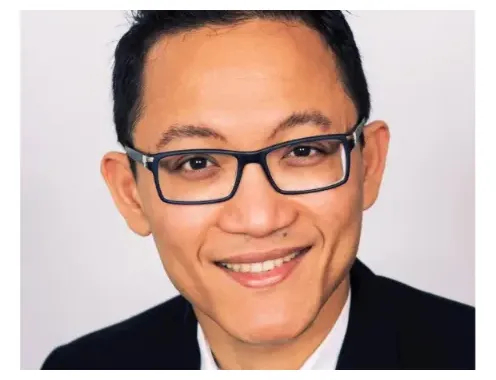
Adri Simamora, CFO Sandoz Netherlands
We see big plans for Sandoz in your commitment to increase patient access to high-quality, life-enhancing biosimilar medicines and obtaining approval for four more biosimilars of major oncology and immunology biologics by 2020 - can you identify how your organization stands out from the market and your competitors?
We have operated in this space for the last 10 years; driving the first biosimilars in Europe and the US. As a division of Novartis, Sandoz is uniquely placed to offer medical innovation and increase access to high quality medicines. In fact, we are the only company with a foot on both platforms; cutting edge research and cost-effective medicines. In understanding the strengths and weaknesses of these two areas, we can best understand the pain diseases can bring and with lower costs, can bring value and solutions to the world.
What challenges await your business and how do you hope to overcome them?
A particular challenge in our industry is to maintain access to medical care within the healthcare budget. We are also keen to be part of the solution and work closely with governments to understand their challenges and share ideas to offer cost-effective, high quality medicines. One way we can do this is through continuously innovating. For example, creating new delivery technologies, product enhancement through combination formulations and in offering improved products compared to others on the market.
What excites you about working for Sandoz?
There was never a more relevant time than now to be conscious of maintaining a healthcare budget that is sustainable and yet still push boundaries to find a cure. If I only worked for a biotech company, I would not understand the limited budget in society – I know we make a real difference. We are a trusted partner. This is also an exciting time for biosimilars and we are leading the way in Europe and the US, again creating better access. As a result, our company culture is innovative, fast paced and open; striving to be better and I enjoy this dynamic environment.
When did you decide to explore a career in Finance and why?
Initially I wanted to study medicine but with my strengths instead chose economics. I see finance as an honest broker; with data, you can see the truth in a situation, review and analyse it and then make decisions.
What would you say is the most rewarding part of your role?
Influencing indirectly, cost controlling and not overspending to add real value to the business. Although not on the front line like sales, finance is a key business partnering role helping to steer conversations to get results and these, at the end of a project or year, are rewarding.
As an evolving industry and agile business, I work with my team to support them, help them to grow and then to run. Seeing this evolution is also rewarding.
If you could change one thing in your career what would it be?
Honestly, not much. I like to stay open and challenge myself; learning from my experiences.
Looking back through your established career, what would you identify as a personal highlight?
Being open to new challenges has opened doors. I could have stayed in South East Asia and continued to work in practice staying in my comfort zone but instead I flew 11,500km to The Netherlands and kept an open mind.
What was the worst / best interview experience you have had?
The worst was when a candidate was unprepared for their interview and instead tried to be the person they thought they should be to get the job. This was obvious, their answers were unconvincing and instead they gave a weak performance.
If I could give advice, it would be to just be yourself, we are all unique, this is what makes life interesting. Importantly this lets you see if the role and company are a good fit for you and the business to see if you are a good fit for the them. The best interviews I have are with candidates who are well prepared and give a confident account of themselves, giving examples of relevant experience and ways they have added value in their previous jobs. Any examples of going the extra mile are great to hear and depending on the role, if a candidate doesn’t have specific experience but makes an effort to redeem themselves through their spirit and has a genuine interest in the business, that’s what counts; skills can be taught.
What advice would you give to future aspiring leaders, and why?
Stay humble. The humbler you are, the more you realise you don’t know everything - if you don’t think like this, it will stop you growing and achieving greater things. Be open to new ideas but don’t be swayed by fads; we live in a changing world and adaptability is key.
Don’t take things for granted and invest in yourself. Try to learn from others, both your leaders or peers. Choose the type of leadership style you would want to have, interview someone with that approach, learn how they move and how they make decisions and then copy this in your everyday.
It was instilled in me as a kid by my grandma that nothing is impossible with focus and hard work. If you put your heart and soul into it, you can achieve anything.
Who was your most admired person when you were in your childhood and why?
Without question, my mother and grandmother, two strong women who were not bound by village thinking and looked outside their small community. Both very hard workers, with an eye for finance as well as being kind hearted; this has rubbed off on me too. It is important not to lose your humanity and touch of kindness; I always look to help where I can.
What books / blogs are you currently reading?
A really interesting read, The Emperor of All Maladies: A Biography of Cancer by Siddhartha Mukherjee
*Views and opinions contained within our Executive Interviews are those of the Interviewee and NOT views shared by EMEA Recruitment.

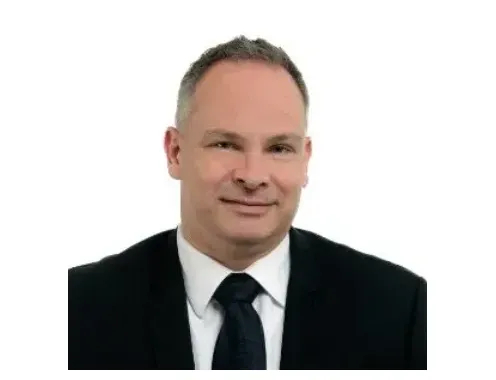
Alain Bayer – CHRO at CRH Switzerland
Can you give our readers a brief summary of your HR career and how you became CHRO for CRH Switzerland?
At the beginning of my career, I was working in operations and ended up in HR by accident really. I worked for a couple of years in Swiss railways in various HR roles and then became the Head of HR for the Public Transport system for Basel city at 30. Moving onwards in my career, I became Head of HR for Jet Aviation, a company in the private aviation industry and was there for 6 years and got more exposure into international business with them. I really enjoyed the international part. From there I joined Panalpina, a global freight forwarder and was working for them for 8 years in various roles including a 3-year stint in Miami. I came back to Switzerland with my family and was looking for a local role as wanted to travel less and have more family time. I was lucky to find the role of CHRO at CRH Switzerland.
How did you plan out your career development path?
Actually, there wasn’t much planning. I just followed my interests and generally my interests were; where can I learn? That was basically driving me and my career path. I also have to say, I was lucky to be in the right place at the right time sometimes. I had good mentorship which really helped me. There was no career goal of to become Head of HR here or there, but always asking myself what can I learn in that role, what interests me and where can I have fun and get energy back from it.
Looking back through your established career, what would you identify as a personal highlight?
I think there are several. The thing that I think from a HR career perspective that really made a difference was my first engagement to the west coast of Africa where I had a task to build up a HR structure and teams which haven’t existed before in places like Angola, Congo, Gabon, Cameroon and Ghana. It was so interesting because obviously Africa is a different continent. I learned that it’s not about the same values or same way of working. I learned there that things can work completely differently and you have to work around things and work differently for success. It made me aware because I assumed I knew a lot about HR, going there to use my skills and tools to build up HR wasn’t good enough. There were new things I had to learn to be able build up something in HR in a different environment. This experience made me aware that if I assume that I know it’s not going to be sufficient.
What motivated you to join CRH?
CRH is a great company with great values and has a lot of humble, down-to-earth people. It’s hard- working. More specifically to my role in Switzerland, I think the business has huge potential. What motivates me here is the transformation the business has to go through. I don’t think this business will be the same in 20 years’ time. We have to think about what do we need to do now, what kind of senior people do we need to hire for our organisation to make sure we can achieve success and remain ahead of the market and our competitors so that in 15 or 20 years we will still be around.
What are your current challenges in your role?
There are numerous but the main challenge is that this is a transformation project. There is that famous saying that ‘culture eats strategy for breakfast’ and I think that is what's happening right now in this company here in Switzerland. Four years ago, we put in place a strategy which I believe is good and we have created structure to implement that strategy. However, I think what we haven’t looked close enough to and understand is, does the leadership culture really support the strategy? And at this stage it doesn’t. So we need to work very hard to change that leadership culture. Also, we need to do some good work to improve sales.
What recruitment challenges do you face?
At this stage, the main challenge is to keep the balance for a business which works really locally; so have local connections and local people but also bring people on board which can work in a big international group and understands the mechanisms of working in an international group or in a matrix organisation. That’s a challenge because usually if you want to stay locally connected you recruit from smaller sized businesses, maybe family owned and often they do not have any experience or understanding of how a large multinational business works.
Moving away from your professional life, what do you like to do outside of your work?
As I was travelling a lot in the past, now it’s really time for my family. I try to spend as much time as I can with my kids. They are into different sports so I spend my weekends at tournaments of hockey or handball and really enjoy seeing them grow up.
If you could choose an Artistic/Musical/Sporting career, who would it be and why?
I would love to be a musician. The reason for that, I think, is the way you can express yourself with an instrument is a great way to communicate and connect with other people without using words. It’s the global language that everybody understands and you don’t need to explain yourself. I think people who listen carefully will understand what you’re telling them without using words.
*Views and opinions contained within our Executive Interviews are those of the Interviewee and NOT views shared by EMEA Recruitment.

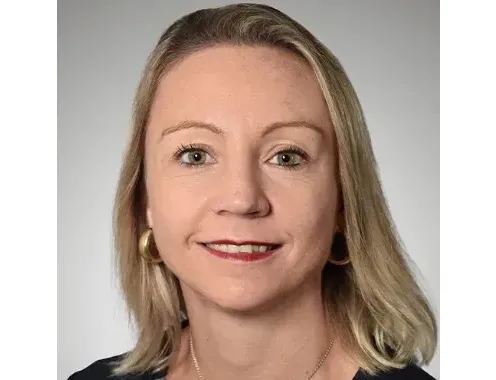
Celine Heinrich - VP HR Europe - Swissport
What do you love about Switzerland and why?
It’s a country where there are rules and structure, it’s very safe and habitants come from all different backgrounds. It makes the people very interesting as every canton has its own traditions.
Switzerland offers a good work-life balance! Also, there’s lots to do with natural environment such as the mountains and the lakes, I like its diversity of cultures, languages, and cuisines!
I also like that there are many multinational companies in Switzerland so often a professional career in Switzerland can offer Regional / International scope; which makes it very interesting.
What are your growth plans?
On a professional side, to reinforce the regional organisation structure. Coming from when there was no regional structure at all. Reinforcing the relationship between corporate, regional and country level. Maximising how we can work efficiently all together.
Then also to strengthen the HR team I have in the region. There are now 9 HR Directors within 10 countries and all at different maturity levels. To enhance skills within HR and increase the way HR can make a difference.
Thirdly, is to focus closely on the industrial labour relations, be able to identify areas of high risk and develop mitigating responses, key focus areas in Europe for Swissport.
All of this needs to lead to profitability as this is really what the company focus is now, after the acquisition (HNA Group). We’re all focused on ” a profitable growth”?!
Being a sparring partner is a pre-requisite for an HR Division- what do you feel makes an effective sparring partner?
For me, I always believe that HR has to act as Business Partner to the business; without a close link to business HR doesn’t make sense. We can work on a lot of things, but if the business doesn’t need it then it’s senseless. We have to focus on what the business needs first.
” Sparring”? for me is about an HR department that is consistent, structured but also fair. Today, we have to live with the globalisation trend and much more focused on talent management.
I strongly believe that the new generation is different and looking for different things. Technological advancements mean young people know much more than we knew at their age. To capture them and to motivate them to come and work for us, we have to be innovative. HR is not about pay and administration anymore but we have to be really embedded within the business and a sparring partner with other functions in the business.
What recruitment challenges do you face?
For me here, the challenges are about targeting the right people for the right country because some people will not be good in some environments. For example, if you need to hire someone for Spain where do they go after that? Many people would not fit within an international environment. How do we attract people who can potential move to another country?
Why is mobility important to Swissport?
We want to gain knowledge and improve in all areas and mobility is crucial to spreading that knowledge across the business so we need to find people adaptable to different environments which isn’t always easy. We still require people with experience, but sometimes those people are less likely to move country and adapt as easily. Ideally, we would have a pool of employees which can move around. Those who are younger tend to have grown up in a more international globalised way but then it’s a trade off against experience which we also want. Therefore, there’s a skillset gap in what we need to improve.
What advice would you give to future aspiring leaders, and why?
First, get out of your own country. Travel, get to know the world for me this is the most important, you must get international exposure. Learn languages otherwise you will no longer be in the driving seat and learn about different cultures and different ways of thinking!
Secondly, specialise in a field. Donâ €™t be too generalist. In the beginning, choose a department which fits with your character. For that, you have to know yourself and be your own consultant.
Don’t be too attracted by a job that pays well. You must follow your ambition and make sure you fit the company and role you are in.
Believe in values. People who succeed today have work ethics, not just technical skills. Those values you will learn with different cultures. In my career, it helped me a lot to have lived across Middle East, Asia, and Russia.
For HR specifically, be pragmatic. Don’t create policy for the sake of policy.
Who was your most admired person when you were in your childhood and why?
My Dad. He always worked hard. I am a triplet; have two twin sisters and a brother! Four children at home and every evening we always had a family dinner which he never missed. For me, it was very important that we had this time. Throughout his professional career, although in difficult times, he always succeeded to overcome problems and never gave up.
He also brought us up with strong values. If someone does something bad, don’t try to enact revenge but understand why. I believe he helped me a lot in my career!
*Views and opinions contained within our Executive Interviews are those of the Interviewee and NOT views shared by EMEA Recruitment.

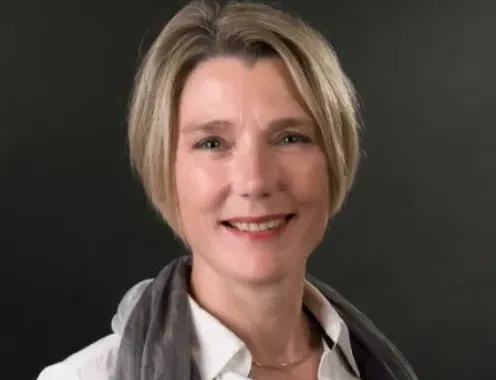
Anita de Graaf - Director Finance & Operations Benelux - Straumann, Noord Holland
You currently work as Director of Finance and Operations at Straumann and have clearly had a very successful career within the business. What have been your career highlights and what would you say has been a key point to your success?
My career highlights within Straumann have included the successful implementation of a new ERP system (SAP), maintaining a high contribution margin, even in the recession, and after becoming responsible for the Benelux region, the successful restructuring of the Benelux finance function.
In implementing SAP, my task was to harmonise the business process for easy international roll out and to ensure smooth implementation in Benelux. As a result, we were able to easily consolidate financial data and sales reports for multiple countries, which previously needed to be pulled individually from their own standalone systems, and in including end users in the test phase, we saved considerable time and energy after the Go Live.
Reviewing the Benelux finance function allowed more interesting roles for team members to be created with opportunities for personal development and growth and for the business, we saved on overall headcount in Benelux as the combined team improved the profitability of the Belgian organisation.
I think the key point to success is to always take the opportunities that come up, focus on what the best outcome for the business is, continue to develop yourself and do what you like doing because that is so much easier to excel in than when you end up doing something that you do not enjoy doing.
What attributes do you think make a good leader in finance?
A good finance leader is able to connect the numbers to the business. Do not just create reports but understand what the numbers mean and be able to explain the meaning to top management and advise on corrective actions if needed. From a team leading perspective, it is essential that you coach a team to be empowered, allow them to make mistakes and help them learn from it. Give them space to develop and grow. I noticed that if you allow them to find their own area of interest they usually go to the area they excel in, focus on that rather than on continuously trying to improve the areas they are not good at.
What advice would you give to ambitious women who are aspiring to reach senior leadership roles?
Do not overthink your career, do not plan it too much or it could limit your options. Take the opportunities as they come and try new things, even if you are not totally confident; there are always people to support you. Be pro-active. Take ownership. Celebrate your successes. If you lead a team, show them trust, delegate and support them where needed because you will only be successful if your team does well. Try to find a company that has a culture that fits to your values, in such an environment it is easy to thrive well.
What books/blogs are you currently reading?
I am currently reading ” Choosing Change”? by Susan Goldsworthy, she was my coach during the IMD High Performance Leadership Training. Also, posts by Harvard Business Review. I am studying Internal Control Systems and Risk Management to refresh my knowhow in that area. I continue to develop my skills and attend several 1-day trainings related to Business Management/Strategy and Productive/Efficient working methods.
When you have interviewed candidates in the past, what are the common mistakes/positives you have noticed?
I notice that candidates tend to put a lot of focus on their formal education, this to me is on the theoretical side of things, it is a snapshot of your theoretical knowhow at a certain point in time. I am more interested in your experience and practical skills, what tasks have you performed, what are your achievements, how did you improve yourself.
What is the best piece of advice you have been given throughout your career?
Continue to question the status quo and talk to people, ask questions all the time. Stay curious and learn along the journey. And most of all, do not give up.
*Views and opinions contained within our Executive Interviews are those of the Interviewee and NOT views shared by EMEA Recruitment.*

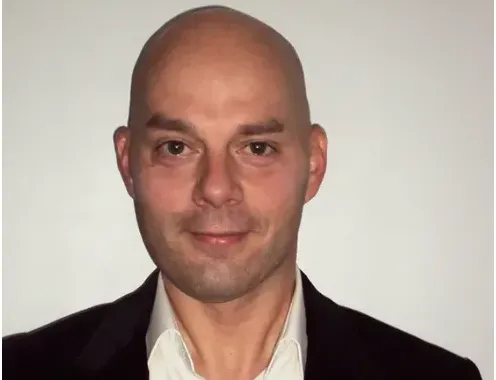
Jure Brecko - Chief Financial Officer - Biosensors International Group, Ltd.
Describe yourself in 3 words.
Responsible, accountable and takes ownership … those are also my expectations of people whom I work with.
I believe these describe a person rather than the person’s capabilities … it means you have someone who is aware of himself and the role he plays in the company, who is responsible for the tasks being done rather than relying on someone else to do it instead. When such an individual accepts the outcome, either positive or negative, then you have an accountable colleague you can count on. Furthermore, a person needs to be willing to sacrifice a part of himself, invest themselves in the company … add to the company’s values and objectives rather than seeing it purely as a monthly source of income … almost as if they own it. In most cases, the company will return the favour.
How would you advise a jobseeker to approach the current market?
It will become rare in the future to find many people, who are willing to make sacrifices for the benefit of the company. Individuals who will be prepared to do so, will be better positioned … almost like starting the 100m race with a 10m head-start. I base this on my last couple of roles in Switzerland and Germany, where I found it very challenging to find recent graduates with realistic expectations of advancement. Nowadays it is hard to quickly advance starting from zero in almost any company, so I would advise someone in university to get exposed to the business whilst studying, as it will be a significant advantage. Overall, the advice is: be flexible, do not have rigid expectations of what a job should be like. Compromise is an essential skill to learn and later on, you will have the ability to be more selective if your skills and experience make your profile more attractive to the market.
What attributes do you look for when choosing a recruitment partner?
Foremost – the ability to understand the company’s and my needs. Secondly, the ability to gather a significant pool of candidates, and thirdly, having international presence. In terms of value-add, I personally need to understand the local market quickly. I haven’t been in Switzerland for a long time, consequently I need to know things quickly to be effective. Receiving advice from local experts is of huge value. Nowadays, there are often discussions about different generations’ expectations, which clearly play an important role in the recruitment process, but I also believe one should not underestimate the cultural differences. Hence why I want more than just a list of people ranked by their abilities and positions held in the past … and I want to be advised correctly when I am perhaps less knowledgeable.
Looking back through your established career, what would you identify as a personal highlight?
This would definitely be the time I spent in Prague participating in the set-up of an in-house regional shared service centre for a multinational, and progressing to eventually leading it. This is a highlight because it was a new thing for both myself, and for my employer. There was no blue-print, we had a lot of freedom to try new things. For me, this was probably the time in my life when I made the most mistakes… and learned from each and every one of them. Due to the importance of the centre at that time, it was unthinkable to make the same mistake twice. It was a very steep learning curve for me as well as for all of my colleagues. Today I wouldn’t claim it to immediately be a particularly smooth operation which delivered all expectations, but I do know that it improved from quarter to quarter and eventually became a benchmark within the company for scope, execution and excellence.
We see that Biosensors seems to be partnering with some of the larger names in the medical devices space – can you identify how Biosensors International stands out from the market/ competitors?
When compared to other competitors in the market Biosensors is not automatically the largest. However, in terms of current and future technologies, it is perhaps one of the most advanced. We have currently a product in our portfolio, which stands out from the rest on the market … and we have clinical evidence proving it, something our competitors simply do not have. We believe we have technological platforms which are setting future standards. Where we do see a challenge, is in scale – Biosensors does not have the reach to use the full potential of the new and exciting products. Therefore, finding a strategic partner was of significant importance to us. We are finding synergies with their ability to cover markets, and successfully sell and market our product. For example, when entering a new market, it takes a lot of effort, time and resources to be successful. Being able to partner with a company which is already present is a huge advantage. It is also true that there are benefits for the partner as well!
What do you love about Switzerland, and why?
I know it’s a bit of a cliché, but I find it amazing how well things work in Switzerland. Compared to my experiences in other countries, things here are very efficient and streamlined. There is very limited bureaucracy involved, the responses you get from various bodies and authorities are very clear. It’s also very impressive how willing they are to use logic and common sense versus blind adherence to the rules. It all gives you a feeling that they want you to be successful. Often you feel like you have a silent business partner … you don’t actually employ them, but you know you have someone supporting you in what you are trying to accomplish. This is a contrast to some other environments I have experienced, where often the bureaucracy represents a hurdle rather than help. Switzerland is so much more than low tax rates which are presumed to be the reason for all the businesses relocating here … several other countries have low tax rates as well … it’s the whole package that is impressive.
If you could choose an Artistic/Musical/Sporting career, what would it be and why?
Tennis. I played tennis – unfortunately not good enough to make anything meaningful out of it. Recently I am more into endurance activities but this is rather a personal challenge than anything else. Acting, singing, I’m terrible at them, sports is more my thing. I would look to a few players to aspire to; Pete Sampras, Stefan Edberg, and being in Switzerland, I guess I cannot skip Roger Federer. For me, they represent the sport, and seem to be (from what you read in the media) humble and normal guys, who in theory could take advantage of their status, but have chosen not to.
*Views and opinions contained within our Executive Interviews are those of the Interviewee and not views shared by EMEA Recruitment.








You can also use your social account to sign in. First you need to:
Accept Terms & Conditions And Privacy Policy